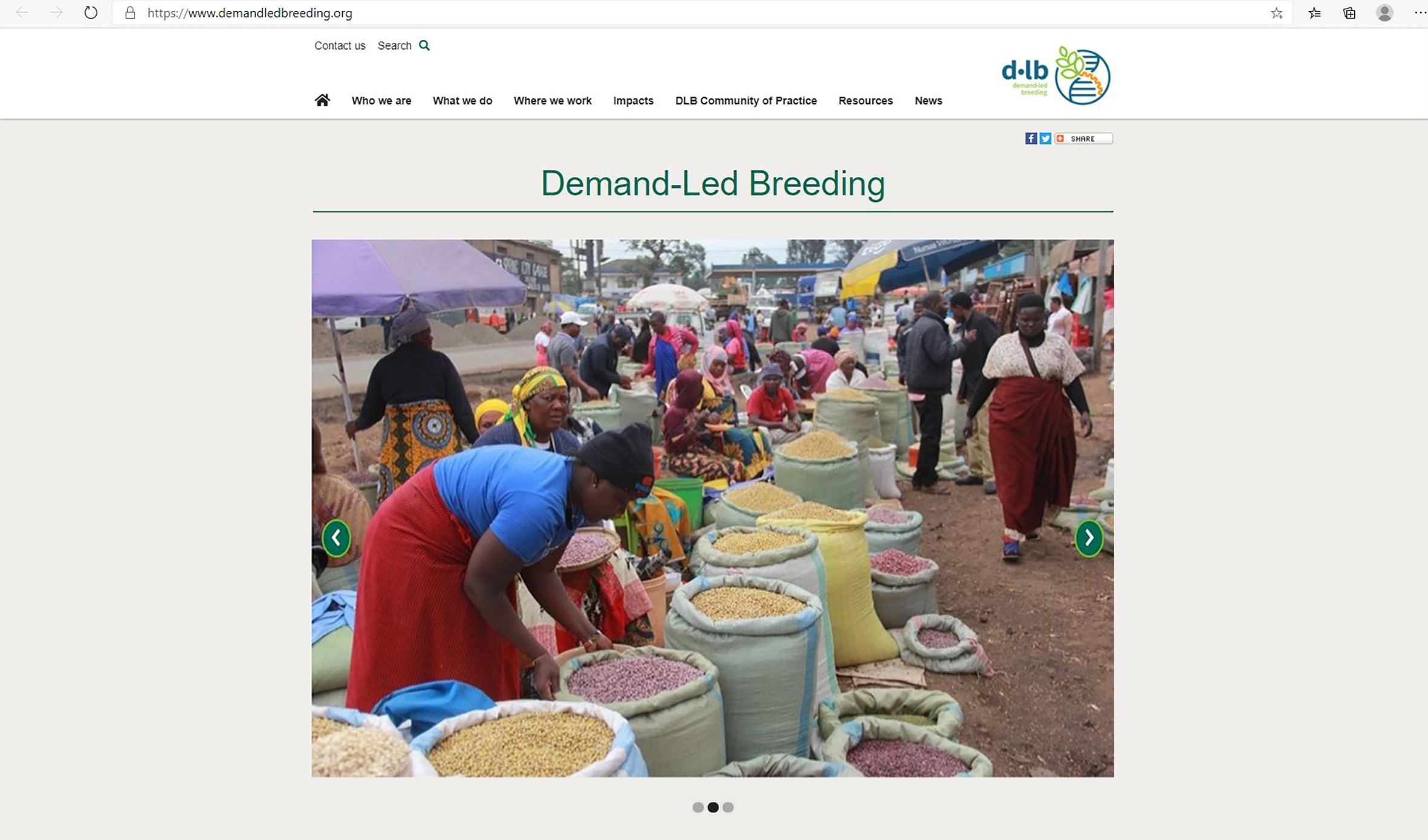

Update on demand led breeding
September 24, 2020
The Alliance for Agricultural R&D For Food Security was launched by ACIAR in 2014, involving the Crawford Fund and the Syngenta Foundation for Sustainable Agriculture (SFSA). Back in 2017, we reported on the international study on demand-led plant variety design by the Alliance. Dr Gabrielle Persley, Research Director for the Fund, has provided the following update on the work around the Alliance’s “Demand led Breeding” (DLB) project and how it contributes to the transformation of African agriculture, enabling small scale farmers to participate in local and regional markets by increasing the availability and adoption of high performing plant varieties that meet market demands. The intention is for plant breeders in Africa to adopt more demand-led approaches to plant breeding in response to the preferences of farmers, consumers and others along the value chain.
On Thursday, 27th August 2020 the Demand led Breeding (DLB) project leadership team organised a webinar to launch the Demand Led Breeding Program’s suite of new publications and Breeding tools on “Product Profiles – A Practitioners Guide.” The webinar was attended by more than 120 individuals most of whom were calling in from various countries of Africa.
The key partners in Africa are the African Centre for Crop Improvement (ACCI), the Alliance of Bioversity International and the Centre for Tropical Agriculture (CIAT) and the Pan African Bean Research Alliance (PABRA); the University of Nairobi; Makerere University, Uganda and the West Africa Crop Improvement Centre (WACCI). In addition, there is a DLB “community of practice” of some 300 plant breeders and crop improvement professionals working within national agricultural research systems throughout Africa, who are engaged with the DLB program of education and professional development opportunities.
The new publications were introduced by members of the DLB leadership team, with an overview provided by Professor Shimelis Hussein from ACCI, South Africa. Dr Clare Mukankusi from CIAT, Uganda, spoke on the importance of taking the needs to women and young people into account when designing new crop varieties. Specific examples of product profiles developed using the new tools for legumes and tomato were presented by Dr Stanley Knalubo, NARO, Uganda, Dr Berhanu Fenta, EIAR, Ethiopia and Mathieu Ayenan , WACCI, Benin. Dr Nasser Yao (DLB Pan Africa coordinator) spoke of the work with the DLB community of practice and its working groups of plant breeders organised around groups of related specific crops.
The webinar was hosted by the Syngenta Foundation for Sustainable Agriculture, and opened by the Foundation’s CEO, Dr Simon Winter and moderated by the SFSA Communications manager Mr Paul Castle. Dr Eric Huttner (ACIAR), Dr Colin Chartres (Crawford Fund), Mellissa Wood (OneCGIAR) and Dr Jean Claude Rubyogo (CIAT- PABRA) gave some closing remarks, on behalf of each of the three funding agencies and the national and international partners in Africa.
Colin Chartres, CEO of the Crawford Fund, commented in his closing remarks that having varieties suited to local conditions, that farmers want to grow, are profitable and that have good marketable and cooking qualities, is in his view a key input to programs focused on sustainable intensification of agriculture.
This webinar also introduced the new website for the Demand led breeding project. The website is an informative resource about this valuable project, including contacts, latest project news and educational resource material, including the new suite of publications. More details of the Demand Led Breeding Program can be found at: www.demandledbreeding.org.

Product profiles: Overview and Practitioners’ Guide
An important early step in demand led breeding was developing the product profiles that identify the priority traits required by various actors along the value chain. A working group of several Africa and international plant breeders was convened in early 2020, to develop guidelines for developing and communicating product profiles, are applicable for a range of crops, environments and markets. These new publications were launched in August 2020, as a DLB series on:
- Product profiles – A Practitioners Guide: Overview
- Product profiles – A Practitioners’ Guide: Creating product profile summaries
- Product profiles for two new bean varieties in Tanzania and Uganda
- Product profiles for two new tomato varieties in Benin and Ghana
There will be a series of further webinars during September /October to establish dialogue amongst plant breeders on the applications of the new product profile tools to specific crops, in order to develop new product profiles to guide future plant breeding on these crops. More details regarding these webinars and the latest news can be found on the website www.demandledbreeding.org


